Health-tech innovators pitch groundbreaking solutions at Innovation Matchmaking showcase
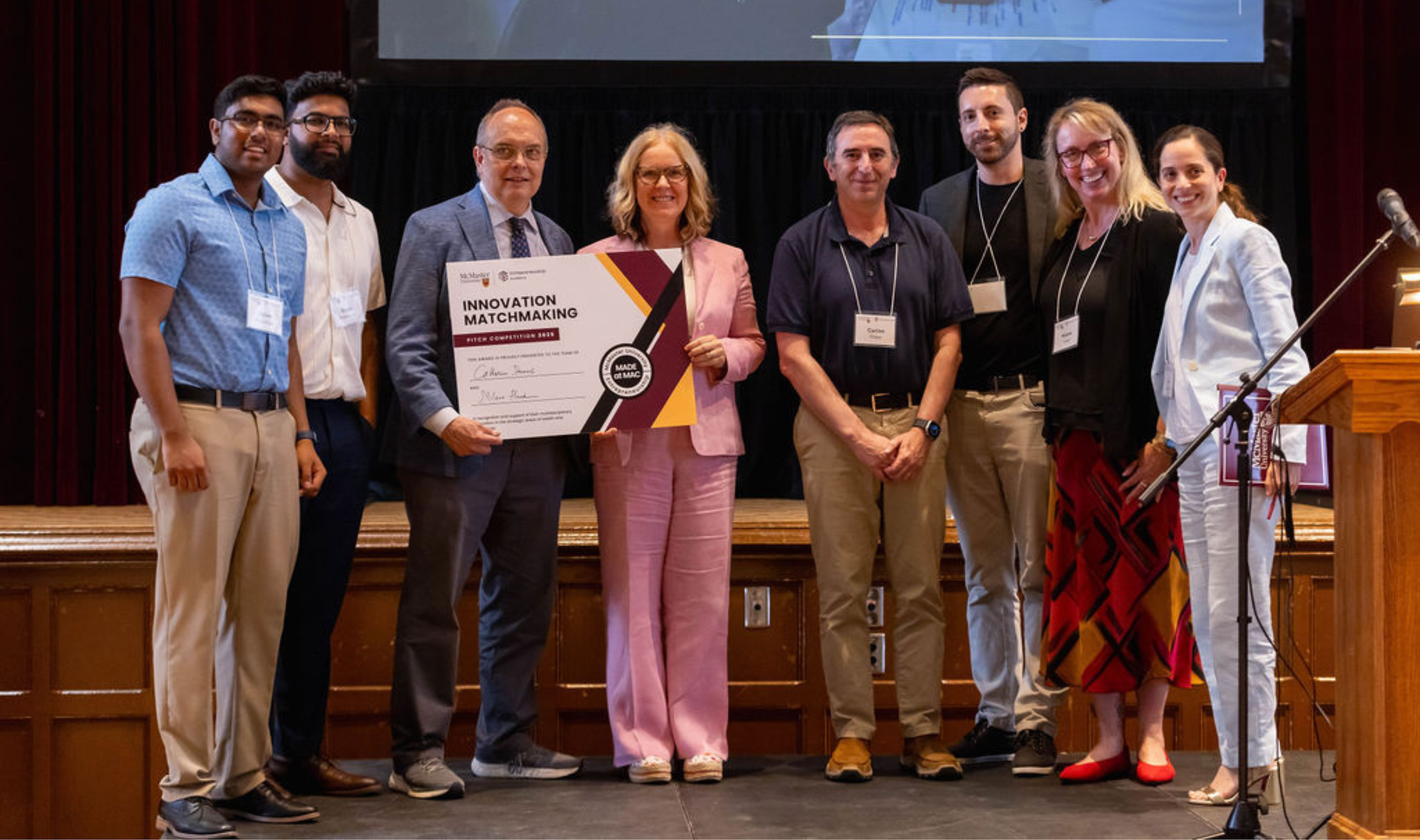
Seven McMaster research teams pitched their health technologies and three were awarded funding to advance and commercialize their inventions as part of the 2025 Innovation Matchmaking program.
BY Daniella Fiorentino, Office of the VP Research
July 16, 2025
Seven McMaster research teams pitched their innovative health-tech solutions as part of the University’s Innovation Matchmaking program.
Now in its second year, the program offers up to $75,000 in prep-funding to help researchers from McMaster and its affiliated hospitals develop and commercialize a technology solution that tackles a pressing health challenge.
The competition is hosted by the McMaster Entrepreneurship Academy in collaboration with Hamilton Health Sciences (HHS) and St. Joseph’s Healthcare Hamilton (St. Joe’s), with funding from the Juravinski Research Institute and the Faculty of Engineering.
It’s one of several initiatives offered by the Entrepreneurship Academy that helps researchers turn their innovative ideas into impactful solutions, says Leyla Soleymani, associate vice-president, Research (Commercialization & Entrepreneurship).
“Innovation acts as a bridge between academic research and real-world impact; and collaboration is what makes McMaster’s innovation ecosystem so special,” Soleymani says.
“The Innovation Matchmaking program fosters multidisciplinary collaboration between researchers from McMaster and our partners at HHS and St. Joe’s — with the goal of helping them turn their groundbreaking ideas into successful technologies and startups.”
“Congratulations to this year’s winners. Your innovations are revolutionizing health care for patients and clinicians in Canada and globally.”
Before the pitches began, Charles Lesperance, partner at venture capital firm Celesta Capital, gave a keynote presentation focused on tech commercialization in Canada and the unique challenges and opportunities facing entrepreneurs in the current landscape.
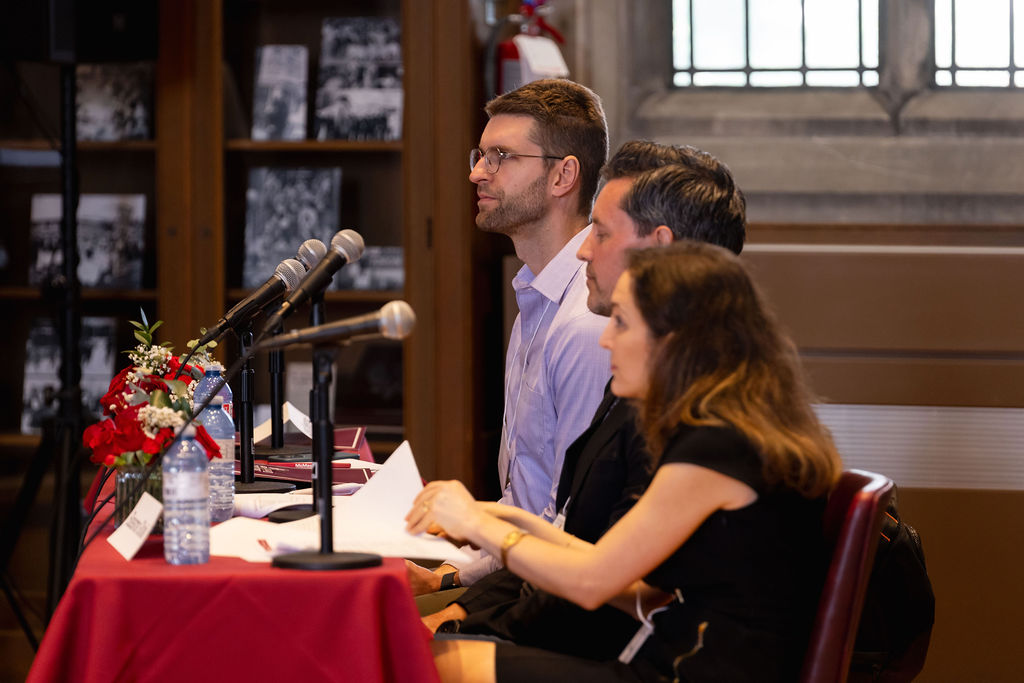
Of the eighteen teams that applied for the program, seven were selected to pitch and three were awarded funding based on their inventions’ potential for commercialization and impact.
Here are the winning projects:
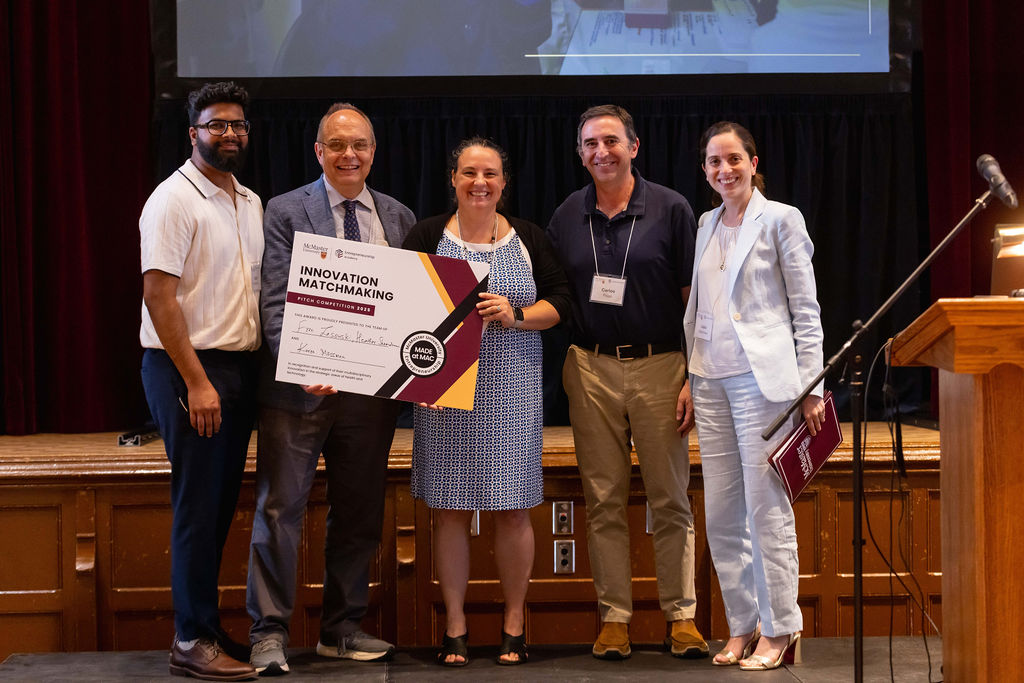
A novel pan-antiviral delivered directly to the lungs to fight respiratory infections: Frances Lasowski, Walter G. Booth School of Engineering Practice and Technology; Karen Mossman, Medicine; Heather Sheardown, Chemical Engineering.
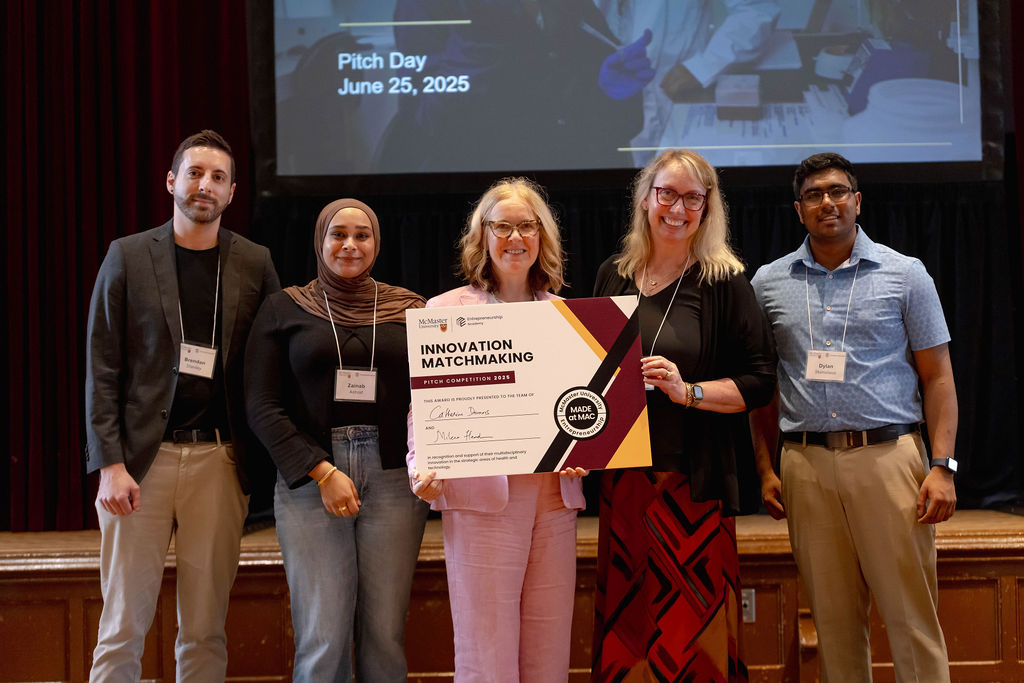
An at-home self-care technology for seniors living with heart failure conditions: Catherine Demers, Medicine, affiliated with HHS; Milena Head, Information Systems; Brendan Stanley, McMaster Digital Transformation Research Centre.
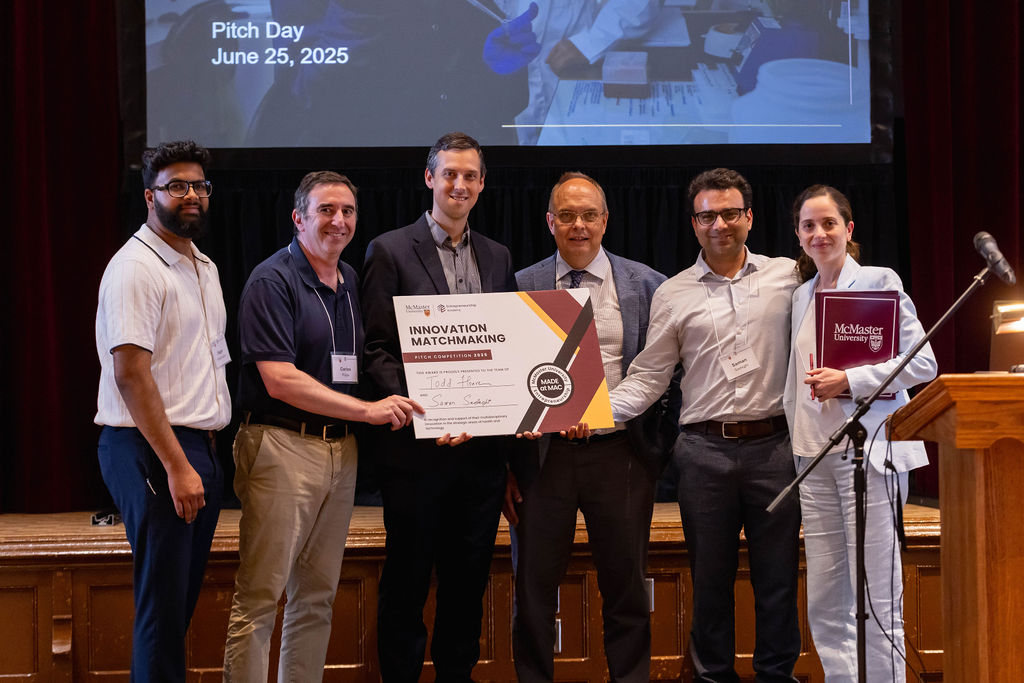
A nano-enabled targeted cancer radiotherapy: Todd Hoare, Chemical Engineering; Saman Sadeghi, Chemistry & Chemical Biology; Katherine Zukotynski, Medical Imaging, affliated with HHS & St. Joe’s.


